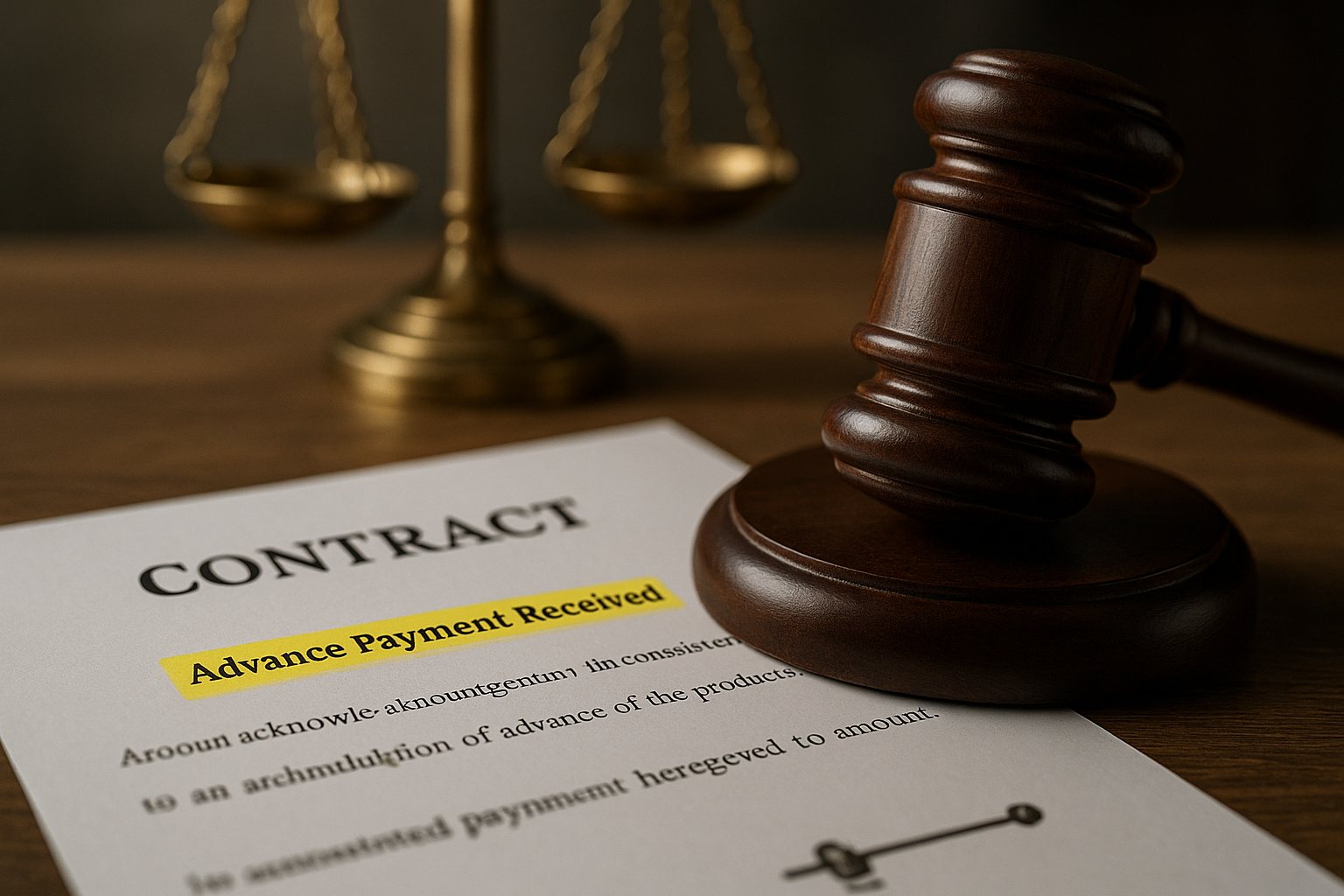In a significant judgment issued on July 28, 2025, the Delhi High Court vindicated the rights of a supplier by upholding a civil suit decree that allowed recovery of an upfront advance payment following a failed supply agreement. This verdict reinforces the enforceability of downstream commercial commitments in contractual relationships.
Case Background & Facts
The dispute arose when a supplier entered into a contract for delivery of goods, receiving an advance payment from the purchaser. However, the buyer eventually defaulted or backed out, causing substantial financial loss to the supplier. The supplier filed a civil suit seeking enforcement of the agreement and refund of advance or delivery.
The trial court issued a decree in favor of the supplier, ordering recovery of the advance amount along with interest. On appeal, the High Court reaffirmed the decree, ensuring the supplier’s legal and equitable rights were upheld.
Court’s Legal Reasoning
-
Binding Nature of Advance Payment
The Court emphasized that an advance payment under a valid and enforceable contract creates a binding obligation on the payor. When a party reneges or fails to deliver as agreed, the payee is entitled to either performance or recovery of the deposit along with contractual or statutory interest. -
Validity of Civil Decree
The Court found the lower court’s decree legally sound, noting the trial court had considered documentary evidence, payment proofs, and contractual terms. No infirmity was found to justify setting aside the decree. -
Commercial Certainty & Justice
Declining to enforce advance payment recovery would undermine business contracts and market confidence. The Court reinforced that civil courts must protect contractual certainty and uphold equitable principles in complex commercial dealings.
Implications of the Ruling
For Businesses & Suppliers
-
Offers powerful protection when buyers renege—advance payments are recoverable through civil recourse.
-
Establishes that invoice-backed suits can yield enforceable decrees even in cross-sector supply chain setups.
For Contract Drafting & Risk Management
-
Businesses should define clear advance payment clauses, delivery timelines, cancellation/cross-refund terms, and interest liability for delay.
-
Commercial contracts should anticipate litigation-backed recovery risk and ensure adequate documentation.
For Buyers (Payors)
-
Firms entering contracts must honour terms or be prepared to face litigation exposure and interest liability for non‑compliance.
-
Post-contract exit or default may result in higher penalty via court-mandated recovery.
Expert Commentary
“Delhi HC’s decision highlights the legal binding power of advance payment contracts—contractual language backed by supporting documentation can ensure a recovery route if delivery fails,” commented CA Manish Mishra.
“This ruling will influence how supply agreements are structured. The enforceability of advance clauses gives suppliers greater confidence, and buyers must ensure contractual clarity before disbursement,” added CA Manoj Kumar Singh.
Conclusion
The Delhi High Court’s ruling reaffirms that civil courts uphold advance payments in supply-of-goods contracts, validating decrees for refund when performance fails. Commercial entities—both buyers and sellers—would be well-advised to document contract terms meticulously and understand that civil recourse remains a robust legal remedy for contractual defaults.












